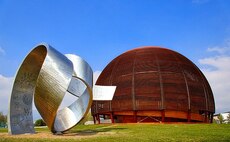François Englert and Peter Higgs receive prestigious honour
Two scientists credited with the discovery of the Higgs boson - the so-called "God particle", which could help open up new understanding about the way the universe is constructed - have been awarde...
To continue reading this article...
Join Computing
- Unlimited access to real-time news, analysis and opinion from the technology industry
- Receive important and breaking news in our daily newsletter
- Be the first to hear about our events and awards programmes
- Join live member only interviews with IT leaders at the ‘IT Lounge’; your chance to ask your burning tech questions and have them answered
- Access to the Computing Delta hub providing market intelligence and research
- Receive our members-only newsletter with exclusive opinion pieces from senior IT Leaders





















